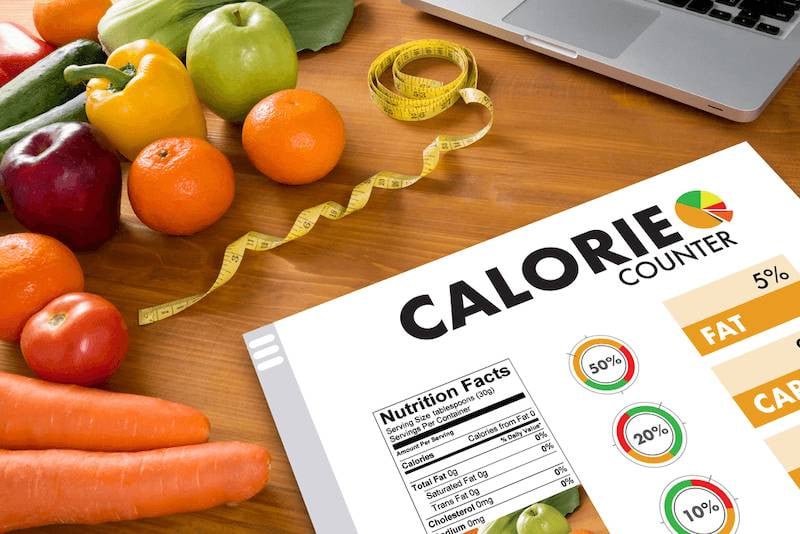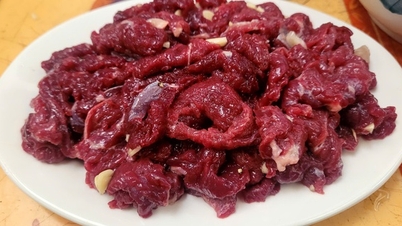In nutrition, the term “calorie-dense foods” refers to energy-dense foods that play an important role in a variety of dietary and lifestyle needs. Calorie-dense foods can be invaluable allies for athletes striving for optimal performance, as well as those recovering from illness or looking to gain weight.
1. Nutritional value of high-calorie foods
The term "calorie" refers to a unit of energy. Most foods and drinks we consume provide calories, which help fuel our body's cells to function efficiently. We also burn calories throughout the day through exercise and normal activities like breathing, sleeping, and eating.
High-calorie foods provide a high amount of calories per serving and are surprisingly nutrient-dense. These options often contain large amounts of essential vitamins, minerals, and other beneficial compounds. For example, nuts are high in calories but packed with healthy fats, protein, vitamins, and minerals like vitamin E, magnesium, zinc, and more.

Calorie-dense foods contain large amounts of essential vitamins, minerals, and compounds that are beneficial to the body.
2. Why does the body need high-calorie foods?
Eating nutritious foods is important whether you are trying to gain weight, lose weight, or maintain your weight. There are many reasons why you might want to incorporate high-calorie, nutrient-dense foods into your diet. Here are some common reasons:
People looking to gain weight: Calorie-dense foods can help provide the extra calories needed to support weight gain for people who are at a suboptimal weight or who have difficulty gaining weight due to a fast metabolism or medical condition.
Muscle Building: Athletes, bodybuilders and those engaging in high-intensity physical training often need higher calories to support muscle growth and recovery.
Recovering from illness or surgery: During recovery, the body needs extra calories and nutrients to support healing and regain strength.
Increased energy needs: People with physically demanding jobs, active lifestyles, or those who participate in endurance sports may need higher calories to meet their energy needs.
Appetite Stimulation: Some people have a reduced appetite due to age, medication side effects, or medical conditions, making it difficult to consume enough calories. Calorie-dense foods can help meet their nutritional needs in smaller portions.
Malnutrition or wasting: Some medical conditions, such as cancer, HIV/AIDS, or chronic diseases, lead to unintentional weight loss and malnutrition. High-calorie foods can provide the calories and nutrients your body needs to recover.
3. Refer to some high-calorie foods that help gain weight
Incorporating high-calorie foods into your diet can be a game changer for those looking to gain weight or maintain a calorie surplus. To gain weight, you need to be in a calorie surplus, meaning you eat more calories than you burn, says Natalie Allen, a biomedical sciences professor at Missouri State University. How many calories you need to add depends on how much weight you want to gain. In general, add about 500 calories a day – the equivalent of 0.5kg of weight a week.

Calorie-rich foods aid weight gain and provide nutrition for people who have recently become ill or have undergone surgery.
Here are 13 high-calorie options that can help support your weight gain goals:
- Nuts: Almonds, walnuts, and peanuts are the most calorie-dense foods, but still provide healthy fats, protein, and fiber.
- Avocado: This fatty fruit is loaded with heart-healthy monounsaturated fats and many essential nutrients.
- Whole Dairy Products: Whole milk, yogurt and cheese are high calorie foods that are rich in calories, protein, essential vitamins and minerals.
- Dried Fruits: Raisins, dates, and prunes are healthy foods that are naturally sweet and low in calories, making them convenient snack options.
- Olive oil and other healthy oils: A tablespoon of olive oil or coconut oil can significantly increase the calorie count of meals and smoothies.
- Quinoa and brown rice: These whole grains are high in calories as well as providing fiber, protein and essential minerals.
- Granola Bars: Convenient and portable, these bars provide a concentrated source of calories from nuts, seeds, and dried fruit.
- Whole grains: Oats, barley, and whole-wheat breads provide calories, fiber, and essential nutrients.
- Sweet Potatoes: Baked or boiled, this starchy vegetable is a nutrient-dense and calorie-dense food.
- Bananas: A convenient, portable option. Bananas are naturally sweet and high in calories, potassium, and fiber.
- Eggs: A versatile and protein-rich option, eggs can be incorporated into a variety of meals and snacks.
- Beans: Lentils, peas, and kidney beans are high in calories, and they also provide a source of plant protein and fiber.
- Fatty fish: Salmon, tuna, and mackerel are high in healthy omega-3 fatty acids and provide a significant amount of calories.
When trying to gain weight, it's important to make sure you're eating enough protein and continuing to exercise to build muscle, not just weight, says Professor Allen. If you want to increase your calorie intake and gain weight, make sure you're eating a diet rich in fruits, vegetables, lean proteins, and whole grains.
Source: https://giadinh.suckhoedoisong.vn/13-loai-thuc-pham-giau-calo-giup-cai-thien-can-nang-172240925142437567.htm



![[Photo] Fall Fair 2025 and impressive records](https://vphoto.vietnam.vn/thumb/1200x675/vietnam/resource/IMAGE/2025/11/03/1762180761230_ndo_br_tk-hcmt-15-jpg.webp)
![[Photo] Prime Minister Pham Minh Chinh receives the Chairman of the Japan-Vietnam Friendship Association in the Kansai region](https://vphoto.vietnam.vn/thumb/1200x675/vietnam/resource/IMAGE/2025/11/03/1762176259003_ndo_br_dsc-9224-jpg.webp)
![[Photo] General Secretary To Lam receives Singaporean Ambassador Jaya Ratnam](https://vphoto.vietnam.vn/thumb/1200x675/vietnam/resource/IMAGE/2025/11/03/1762171461424_a1-bnd-5309-9100-jpg.webp)
![[Photo] Lam Dong: Close-up of illegal lake with broken wall](https://vphoto.vietnam.vn/thumb/1200x675/vietnam/resource/IMAGE/2025/11/03/1762166057849_a5018a8dcbd5478b1ec4-jpg.webp)

































































































Comment (0)